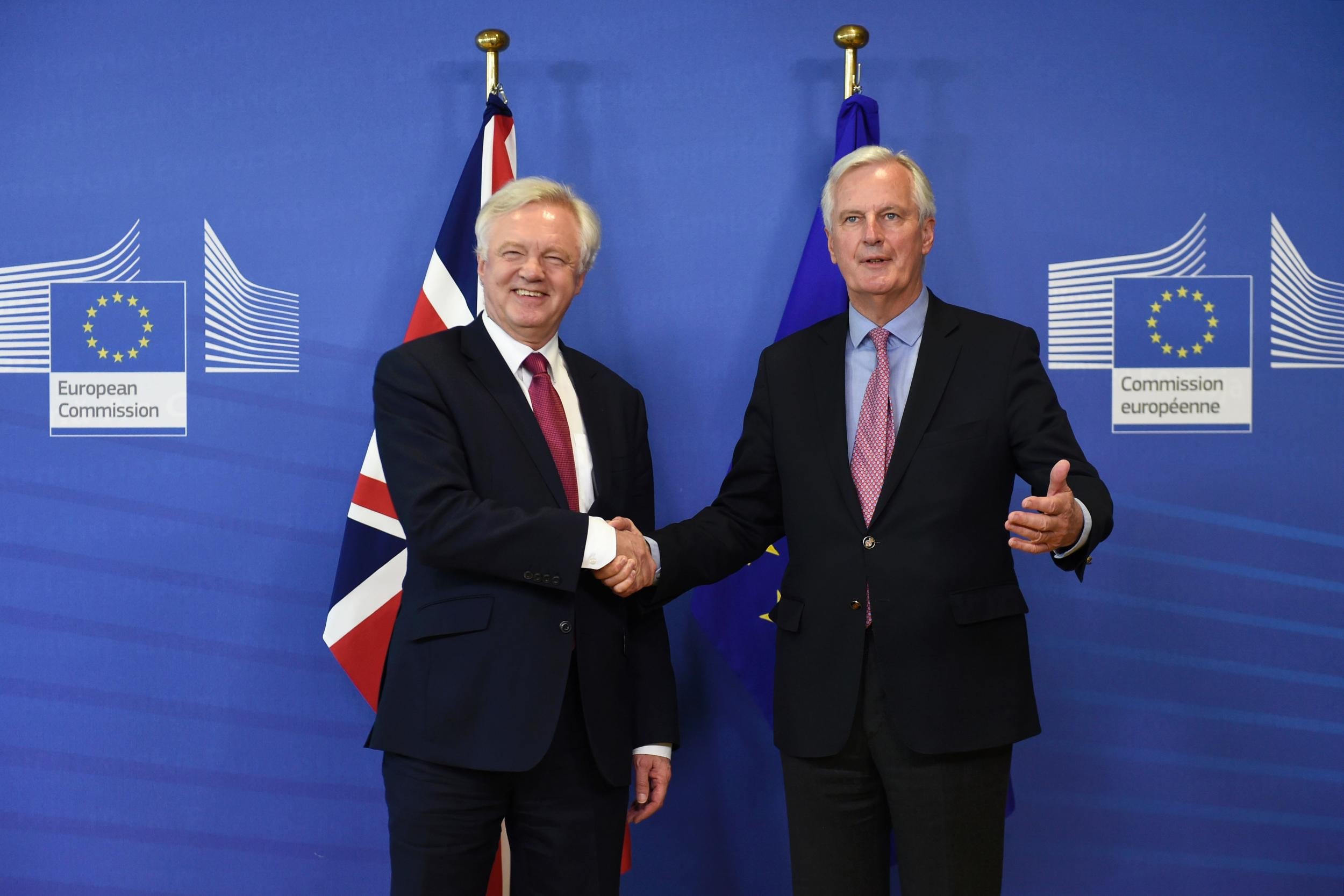UK willing to do deal on European Court of Justice's influence after Brexit, says David Davis
Minister says future trade disputes could be resolved by a new body that may involve European officials

Your support helps us to tell the story
From reproductive rights to climate change to Big Tech, The Independent is on the ground when the story is developing. Whether it's investigating the financials of Elon Musk's pro-Trump PAC or producing our latest documentary, 'The A Word', which shines a light on the American women fighting for reproductive rights, we know how important it is to parse out the facts from the messaging.
At such a critical moment in US history, we need reporters on the ground. Your donation allows us to keep sending journalists to speak to both sides of the story.
The Independent is trusted by Americans across the entire political spectrum. And unlike many other quality news outlets, we choose not to lock Americans out of our reporting and analysis with paywalls. We believe quality journalism should be available to everyone, paid for by those who can afford it.
Your support makes all the difference.Cabinet minister David Davis has signalled he is willing to do a deal with Brussels over the European Court of Justice's influence in the UK after Brexit.
He said the UK would consider setting up a new arbitration body that would include European officials to rule in future trade disputes. The Brexit Secretary was adamant that it would not mean the ECJ itself continuing to have a role, something Theresa May has made a red-line in her approach.
Mr Davis also said he was "not certain" that an overall deal would be reached with the EU, after the disagreement over the ECJ's role crystallised last week.
Ms May had put her proposals to European leaders over how she planned to guarantee the rights of European citizens to remain, work and use services in the UK after Brexit, insisting that the rights would be protected by British courts. The European Commission has indicated, however, that it wants the ECJ to guarantee the rights, as well as oversee the withdrawal negotiations and arbitrate future trade disputes between the EU and UK.
Speaking to the BBC's Andrew Marr Show, Mr Davis said EU citizens' rights would be enshrined in British law, but signalled a deal could be done on resolving future trade disputes. He explained: "When we are doing all these deals on trade and other areas, there will be arbitration arrangements.
"There won't be the ECJ, there will be a mutually agreed chairman and somebody nominated from both sides, that's the normal way, but there my be other ways too, and it may well be we have an arbitration arrangement over this, but it's not going to be the European Court of Justice."
Such an arrangement could still see the ECJ's judges involved, or mean the new arbitration body's structure and rulings are subject to ECJ influence in Europe – but it would allow Ms May to reach a deal, while still claiming that the ECJ is not directly involved in ruling over trade disputes.
The frosty reaction to the Prime Minister's proposals for EU citizens' rights at the European Council summit last week, underlined how difficult negotiations may be.
How well her proposals are really received, will become clearer after the Government publishes full details on Monday.
Mr Davis said: "The key in any negotiation is not a macho clashing of antlers. "It's about finding the place that suits both sides. That's what we're about." He added: "I'm pretty sure [we can reach a deal]. I'm not 100 per cent sure. You can never be. It's a negotiation ...I'm pretty sure, but I'm not certain."
Join our commenting forum
Join thought-provoking conversations, follow other Independent readers and see their replies
Comments